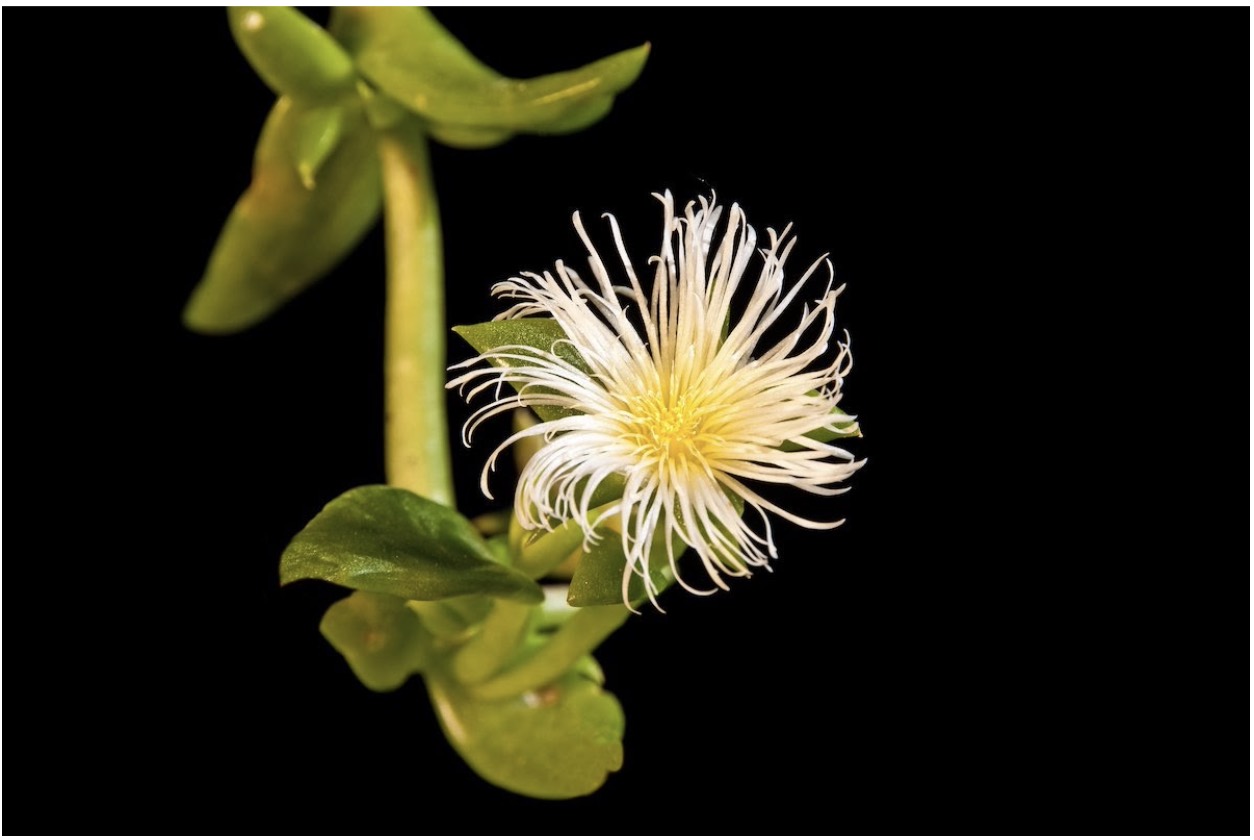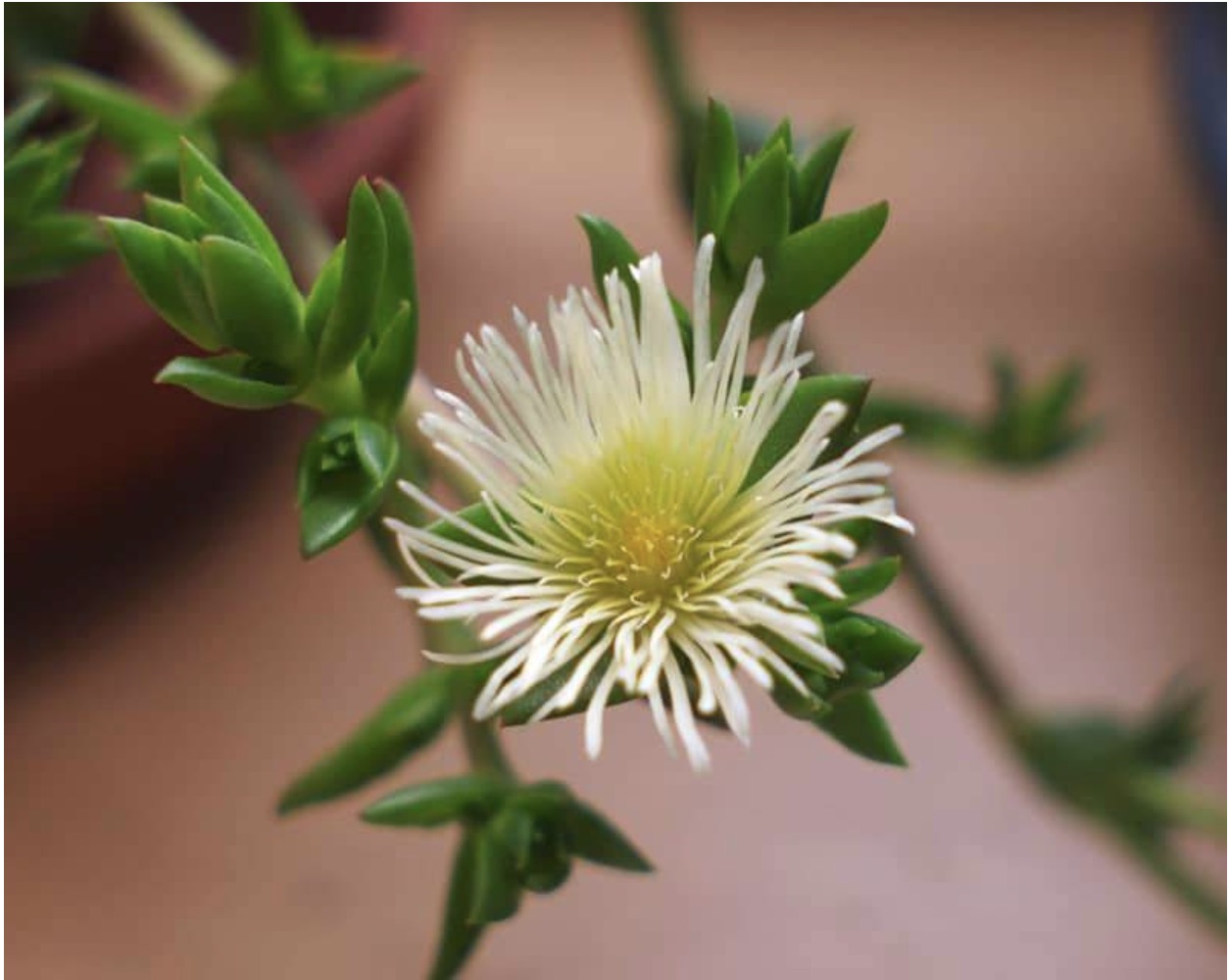Without question, the demand for more holistic approaches to human health is growing by leaps and bounds. One in five adults now looks for some form of wellness support that falls beyond the confines of traditional medical care, and certain natural supplements are a huge part of that effort. Kanna, a South African plant with a lengthy history, shows promise as a natural contender when it comes to wellness support.
What is kanna, how does it work, and why is it suddenly becoming so popular? We’ve pulled together some of the latest research to give you a formal introduction.
What is kanna?

Kanna is actually a succulent that grows natively in South Africa. The low-growing plant acts as a bit of a ground cover, spreading its thick green leaves and tiny yellow or white blooms over the ground. The indigenous tribes of the area used the leaves as a medicinal herb to help with everything from fatigue during treacherous journeys to fighting stress and heightening spiritual awareness.
Scientifically, kanna is referred to as Sceletium tortuosum. The plant boasts a host of biological properties and specific valuable alkaloids that make it valuable to humans. For this reason, researchers believe the plant has a litany of beneficial properties that make it a viable candidate for use in the wellness category.
How is kanna used for wellness support?

As a botanical ingredient, kanna can be in used in a variety of supplemental products including capsules, powders, e-liquids, concentrates, teas, and more.
Some brands, like Hello Kanna and Party Kaps, combine kanna with other ingredients like nootropics, vitamins, and caffeine to offer enhanced support for various conditions.
The interesting biological makeup of kanna gives it desirable properties that could be highly valuable for wellness support. Some of those properties include:
- Acting as an antimicrobial agent
- Offering antioxidant actions
- Providing anxiolytic and mood-supporting properties
It turns out, some of the same reasons the plant was used historically are just as valuable to people of modern times. For example, some people use kanna every day to reap the uplifting psychological benefits, while some people turn to kanna to help them better cope with physical pain.
Potential Kanna Benefits

While kanna has been relied on by certain parts of the world for centuries for its uplifting effects, modern-day research into the effects is just beginning. Here is a look at what we know about kanna’s benefits so far.
May help with brain function
So far, a few small studies have established kanna as something that may help with cognitive function. For example, in an animal study, rats given kanna extract seemed to show improved cognitive performance. And, in a small human-participant trial, the herb seemed to help with things like executive function and cognitive set flexibility.
May support a stable mood
One of the most desirable kanna effects is its ability to induce a sense of calm and happiness among users. The action is thought to be relative to the herb’s interaction with specific parts of the brain that process emotions like fear and anxiety. While the specifics of how or why are not yet clear, a lot of people find kanna seems to help support a peaceful, happy state of mind.
A few small-scale studies have examined how sceletium tortuosum helps induce a better mood. For example, a study involving 16 participants found that the supplement helped reduce anxiety levels related to amygdala processes in the brain. While the formal research is limited, there is no shortage of anecdotal reports from people who use kanna specifically to help them thwart feelings of sadness and give them a more at-ease and peaceful feeling.
May deter stress
The uplifting effects of kanna may not only be valuable to help with your mood, this herb may actually help reduce stress. While the scientific research behind kanna benefits for stress is not especially profound, one study did find that the extract may actually reduce hypertension levels and be beneficial for stress.
May help with pain
Some people already use kanna for pain, even though the formal research on the analgesic properties of kanna is relatively limited. One small animal study did mention that sceletium tortuosum may offer some level of pain-relieving action, but more research needs to be done to fully understand this attribute and whether it could apply to humans.
Is Kanna Safe?
Kanna is widely considered to be safe for human consumption. Studies show that kanna has no side effects on humans in doses up to 6 mg per pound of body weight. Some first-time users may experience nausea with their initial dose, but this usually disappears over time. Researchers studying the effects of kanna on rats have demonstrated that the herb is non-habit forming.
Explore Kanna as a Natural Wellness Product for Your Life

With more people taking a holistic approach to a well-lived, healthy life, there is bound to be a focus on new plant-derived contenders that support that journey. Kanna is by no means new with its rich history as a wellness herb. However, the newfound interest in natural health support has brought kanna out into the spotlight.
If you’re looking to explore the potential enhancements kanna can offer, be sure to do your research and find a high-quality product from trustworthy brands like Hello Kanna and Party Kaps.
Kanna products from both brands are combined with a variety of supportive ingredients and are made with standardized extracts that contain higher, yet consistent mesembrine alkaloid levels. This allows for the user to enjoy a reliable and consistent experience that is truly superior to other products currently on the market.
To learn more about these fast-growing, kanna-powered wellness brands, visit their websites at the links below:
Advertising disclosure: We may receive compensation for some of the links in our stories. Thank you for supporting LA Weekly and our advertisers.
